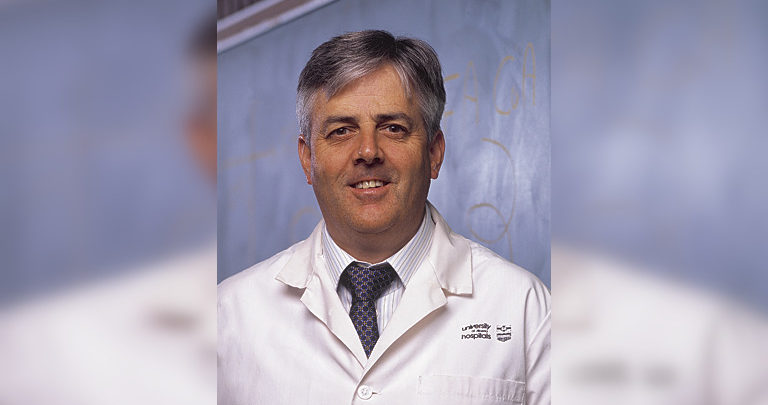 Supplied
SuppliedA University of Alberta cardiovascular researcher was one of five University of Alberta researchers who received a grant from the Heart & Stroke Foundation of Canada.
Gary Lopaschuk is a professor of pediatrics and adjunct professor of pharmacology and divisional director of pediatric cardiology. Additionally, he is a former director of the Cardiovascular Research Group and former scientific director of the Mazankowski Alberta Heart Institute, is a recipient of the 2021-2022 Grant-In-Aid program. This provides funding for “important, pertinent, and novel research in the area of heart disease and stroke” over three years.
The project the Heart & Stroke Foundation is funding involves how branched chain amino acids (BCAA) can lead to insulin resistance as seen in type 2 diabetes in patients with heart failure. Amino acids are the building blocks of proteins.
While a healthy heart is able to use many forms of energy such as sugars such as glucose, fats, and amino acids, it becomes inflexible in heart failure and this leads to the heart becoming starved. The heart can stop responding to insulin — a hormone which allows tissue in the human body to take up glucose to use as energy. It is believed that BCAAs can contribute to this and they are more common than one would think.
“If you go into a bodybuilding shop, you’ll see big buckets of BCAAs or proteins that are enriched in BCAAs,” he said. “This is because one of the effects of BCAAs is … muscle growth. So, bodybuilders and people like that are using these BCAAs as a way of increasing muscle size.”
Lopaschuk did not always plan to go into research. During his undergraduate degree at the University of British Columbia, he was pursuing a bachelors of pharmacy and training to be a pharmacist.
“During my last year of pharmacy, I did a research rotation at the University of British Columbia, and I really got excited about research and the fact that you’re discovering new things,” Lopaschuk shared. “So I decided rather than continue to practice as a pharmacist … I would train as a researcher.”
From there, he did a master’s and PhD in pharmacology and went to the Mayo Clinic to do research and a postdoctoral fellowship at the Hershey Medical Center. From the very beginning, he has always done cardiac research because those were the opportunities presented to him at the time.
“I felt that was a very good area to get involved in because there was a lot to learn and so I’ve always stayed in that area and I haven’t moved away because I think there is a lot to be discovered and a lot still to be done in that area of research.”
However, throughout his entire career as a researcher, one group of people has always supported him: the Heart & Stroke Foundation of Canada.
“I’ve been supported by the Heart & Stroke Foundation from the very beginning, even as a graduate student in a graduate student traineeship, and then [as] a fellowship, scholarship, and in-grant support,” he said. “They’ve been very good to me throughout my career, and they’re very supportive of research and research trainees in Canada.”
Lopaschuk is very active provincially and federally with the Heart & Stroke Foundation. He runs scientific review committees and is on grant review committees. He wants people to recognize the work the Heart & Stroke Foundation is doing, such as providing cardiopulmonary resuscitation (CPR) training.
“In the economy, they say ‘time is money;’ in cardiology they say ‘time is muscle,’” he said. “If you have a heart attack, or if your parents or your grandparents have a heart attack, knowing CPR to keep them alive until the paramedics get there.”
In addition to this project, Lopaschuk also does other research on the heart, diabetes, and heart health in newborn infants. He suggests students take part in research.
“Consider research as a career, there are a lot of research opportunities not just in heart disease, but in all areas on our campus,” he said.
“And don’t take BCAAs; there are other ways that increase muscle growth.”




